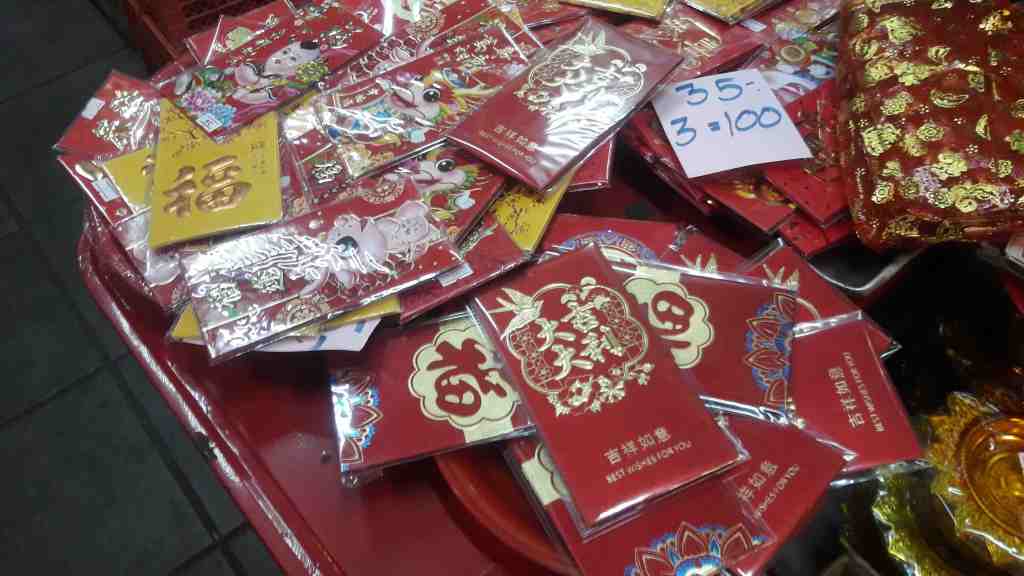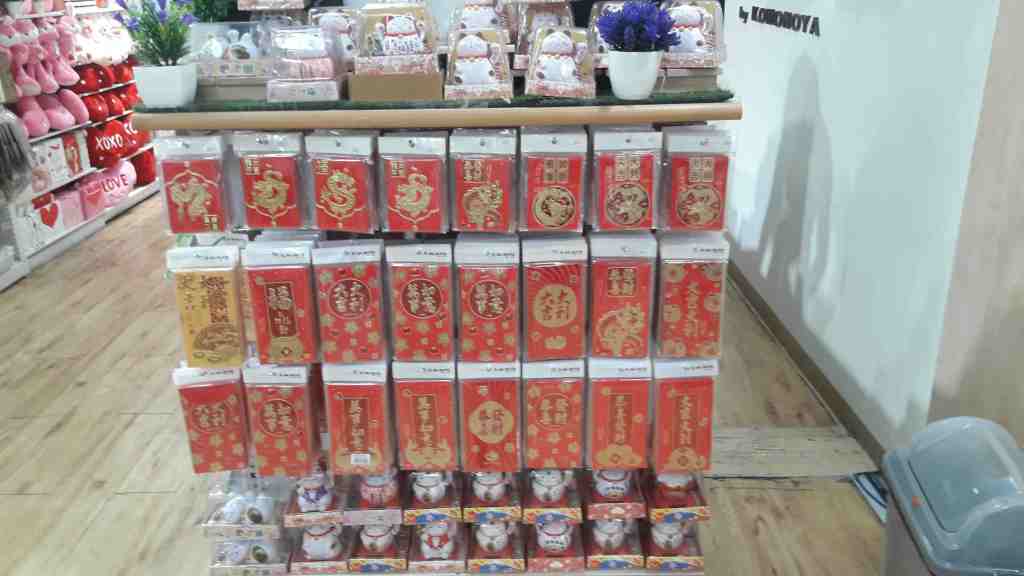
The red envelopes, a clever phenomenon (for Westerners) in Asia, help you to less rack your brain for a thoughtful gift to someone – unless you are invited to a Secret Santa Expat party and need to bring something that pleases everyone. You can fill an envelope with money for any other celebration, and you are done.
As the Chinese New Year is upon us, the exchange of monetary envelopes is imminent. Within families, the elders give it to the younger and vice versa, but also, within companies, the tradition of exchanging cash-rich gifts ensues. Bosses give the beautifully decorated envelopes to employees, not only as a bonus but as a token to ward off evil spirits and bring good luck, expressing gratitude before they travel back to their families to celebrate the CNY holidays.

In Thailand, there is no official time off for the Lunar New Year; however, many Thai-Chinese families celebrate the beginning of the new year with elaborate dinners and lunches. According to Theraphan Luanghtongkum, a Thai linguist, the Thai population is made up of around 40%, with Chinese ancestry hailing mostly from Han Chinese immigrants who have arrived in the region over several centuries. When the families (or friends) get together, there is ample time to exchange Aung-pao (from Hokkien, meaning monetary gifts) to show love.
Among the younger generation, the traditions are less practiced; however, no one says no to an envelope full of cash. These red (or other colors, but avoid dark), auspicious envelopes are everywhere, easy to purchase in grocery or even convenience stores such as 7-Eleven or so.

The modern generation probably doesn’t mind if the tradition is not totally followed, but there is an art to stuffing the envelope. Here are some tips for the uninitiated to avoid embarrassment:
- Use new, crisp, fresh bills, no coins.
- Do not fold the bills.
- Select even amounts as they are preferred, except for number 4 (resembling the word death); for example, 200, 600, or 800 Baht. They are considered auspicious.
- Try to put even denominations.
- For special, positive meanings, it includes denominations, including 8s for good luck and 9s for longevity.
- If you like, include a slip of paper with a meaningful poem or saying.
When you receive an envelope, use both hands as a sign of courtesy and don’t open it until the giver has left, and the money should not be spent until after the Lantern Festival (the 15th day after the new year). It doesn’t really matter how much money is in it because the purpose is a symbolic gesture to start the new year and build or maintain relationships. In the business context, it is a wish for success and good collaboration.

If you have not given an envelope yet, there is still time to go out and buy a beautifully designed one and stuff it with some bucks for the people who matter to you.May the Year of the Dragon be a happy, prosperous one for you, with lots of great interactions and experiences.
#Asia #Aungpao #Bangkok #ChineseNewYear #CNY #envelope #gift #Hokkien #LunarNewYear #money #thailand
Photo credit: own and pixabay